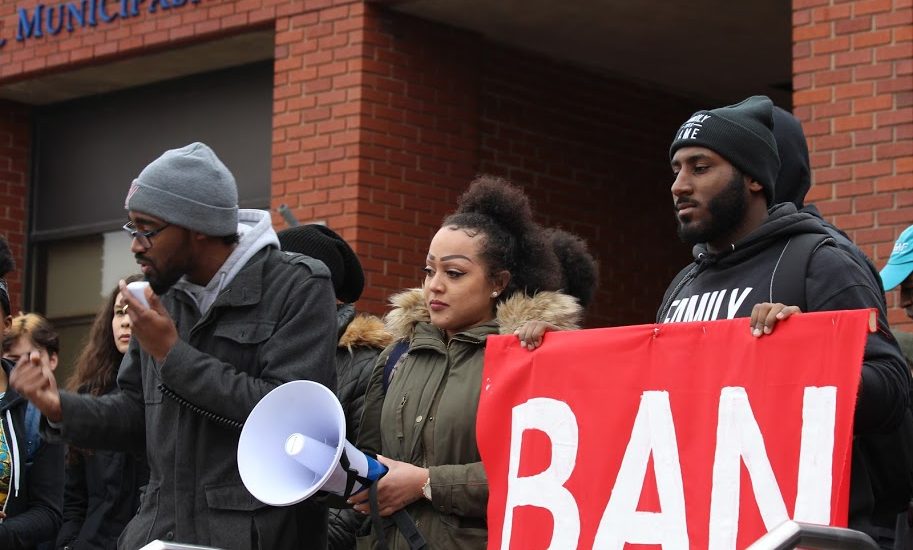
KJIPUKTUK (Halifax) – When writing about the Halifax Board of Police Commissioners, I often remind readers that it was a CBC journalist who, in 2017, uncovered the stats that eventually triggered the Wortley report and the subsequent province-wide ban (sort of) on street checks.
In all these years since a human rights court ordered police to track race-based statistics, in 1993, it never occurred to any commissioner to ask the chief of police about them. Several of those commissioners are still on council.
The Board of Police Commissioners didn’t hold police accountable then, and that continues to this day.
Last week Councillor Lindell Smith, the current chair of the Board of Police Commissioners, told the Chronicle Herald that the Board can do very little about the horrible ways the evictions of unhoused people by Halifax police on August 18 were executed, including the decision to use pepper spray on non-violent protesters and bystanders.
“What the board doesn’t do, is the board can’t give operational direction and the board can’t tell the chief how to do things,” he said.
This means the board can’t direct police when they can and can’t use pepper spray or riot gear, for example.
“The commission also can’t tell police to not enforce bylaws or compliance,” Smith told the Chronicle Herald.
“I would never want that, at all,” he said when asked if politicians should be more involved in directing police on operational duties.
“Those are places where we have politicians who have their own view and could be swayed by public perception and who knows what decisions could be made that impact community.”
Going by this logic and the examples Smith lists, very few police actions can ever be questioned. I find that a bit hard to swallow, given that we fund the Halifax Regional Police to the tune of $89 million.
Thankfully, Smith is wrong.
Of course we don’t want politicians to tell police to throw away a parking ticket, or interfere with investigations and other day to day activities.
The Nova Scotia Police Act is very clear on that, and rightly so.
But that same Police Act clarifies, in section 55, when a police board does have jurisdiction and can ask questions or even issue directions and set priorities. It turns out community values and public perception matter a whole lot.
(3) Without limiting the generality of subsection (1), a board shall
(a) determine, in consultation with the chief officer, priorities, objectives and goals respecting police services in the community;
(b) ensure the chief officer establishes programs and strategies to implement the priorities, objectives and goals respecting police services;
(c) ensure that community needs and values are reflected in policing priorities, objectives, goals, programs and strategies;
(d) ensure that police services are delivered in a manner consistent with community values, needs and expectations;
(e) act as a conduit between the community and the police service providers;
(f) recommend policies, administrative and organizational direction for the effective management of the police department;
(g) review with the chief officer information provided by the chief officer respecting complaints and internal discipline;
(h) ensure a strategic plan and business plan is in place; and
(i) ensure the department is managed by the chief officer according to best practices and operates effectively and efficiently.
On August 18 we witnessed a series of over the top police actions, including the use of pepper spray on innocent bystanders without advance warning, the donning of riot gear, efforts to prevent journalists from doing their job, the absence of name patches on officers’ uniforms, and other questionable actions.
Questioning these practices has nothing to do with operational interference, and everything with the board’s broad job description as listed in plain English in the legislation, especially in terms of subsections c and d, referencing community values.* The Board can tell police to clean up its act when the community feels that’s called for.
Meanwhile, chief of Police Dan Kinsella should be challenged and held accountable for the many lies he told at the press conference on the day following the police evictions.
If all else fails they can discipline the chief.
What happened this month has been a wake up call for many citizens of HRM. Let this also be a wake up call for the commissioners. They have way more power than chair Lindell Smith seems to think.
*A similar argument has been made by the Nova Scotia Policing Policy Working Group (here, and in more detail here).
See also: Three somewhat remarkable images from today’s protest
Check out our new community calendar!
With a special thanks to our generous donors who make publication of the Nova Scotia Advocate possible.
Subscribe to the Nova Scotia Advocate weekly digest and never miss an article again. It’s free!




Hey,
When the people were removed, where were they placed?
Where did the go?